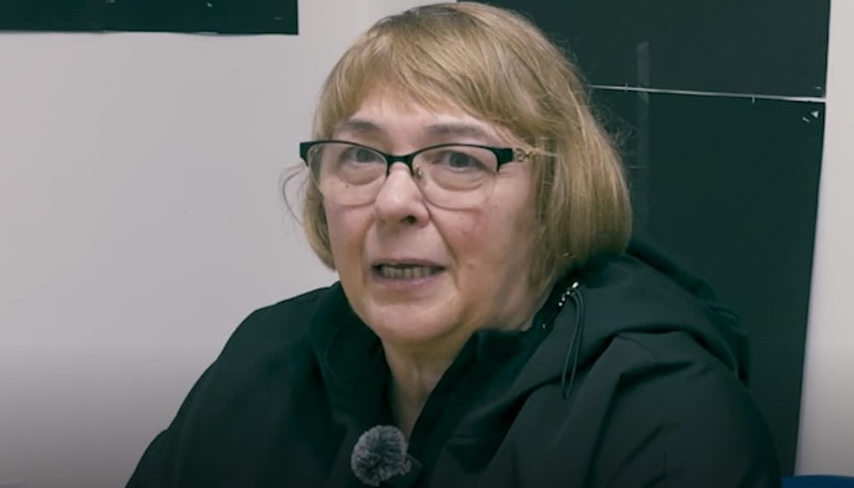Carer in the Spotlight: Linda
This month, our foster carer in the spotlight is Linda. Watch her videos here.
“Linda has been a foster carer with us for over 10 years,” says Progress Fostering Manager, Michelle Earp. “Throughout that time, she has given her young person, placed with her at just five years old, an incredible sense of stability and belonging.” But their journey together has not always been straightforward.
Early trauma, a later diagnosis of autism and the daily challenges of growing up could have made life uncertain. Instead, with Linda’s patience and resilience, those challenges have been met with care. “She has shown what we aspire to see in every foster carer: patience, resilience, and above all, unconditional love. Linda has not only provided a safe home, but also a family, identity and a lifelong sense of belonging.”
Linda’s life has always revolved around people. For years she worked in kitchens, cooking for others. Seventeen years of chopping, stirring and serving meals gave her a steady rhythm, one that was later broken up by spells as a dinner lady, a school cleaner, a lollipop lady guiding children across the road, and even a stretch of office work. “I’ve done a bit of everything,” she laughs. None of it seemed like preparation for fostering, yet every role had something in common — caring for people, looking out for others, making sure they were fed, safe, and seen.
It was during a family trip to Sandwell Park that her life took an unexpected turn. Progress Fostering had set up a small tent, filled with leaflets and friendly staff. Linda wasn’t planning to stop, but her husband encouraged her to step inside. They struck up a conversation with a Progress social worker, and that simple chat planted the seed of a new calling.
The boy at the door
In 2015 Linda welcomed a young boy into her home. His background had been difficult and uncertain, and the day he arrived was etched into her memory. He stood by the front door in tears, unsure whether to step further inside. Linda didn’t push him. She quietly let him know she was nearby if he needed anything.
That night was restless. Twice he came back downstairs after she tried to settle him. On the second attempt he finally slept through. By morning he was still hesitant, still hovering by the door. Linda offered him breakfast. At first, he refused, then at ten o’clock he changed his mind, sat down at the table, and began to eat. It was a small moment, but for Linda it marked the start of trust. “From that day, he never looked back,” she recalls.
He had come as a short-term placement, but something shifted. He began to feel safe, and her home became his. Nearly ten years later, he is still there.
Stability above all
For Linda, fostering is about more than opening your front door. It is about providing stability where there has been none. “If you can ride out the ups and downs with a child, it is worth it,” she says. “They learn that not everyone is going to give up on them.”
Her foster son has autism, something that wasn’t recognised straight away. Training with Progress, especially the Solihull approach, gave Linda the tools to understand him better. She learned how to recognise his triggers, how to calm him when emotions ran too high, and how to support him when he struggled to find words. Sometimes that meant letting him speak through a toy dinosaur, using play as a bridge for feelings he couldn’t otherwise explain.
To some it might look unusual. To Linda, it was simply love in action.
From brokenness to belonging
Today, the boy who once cried at the front door is a young man in college. He is working hard to improve his grades and carve a future for himself. Life is not without its challenges, but he has grown into someone who smiles, laughs, and belongs.
“He’s happy,” Linda says. “He’s a different child to the one who first came to us.”
Fostering was never just Linda’s decision. Her daughter, only 13 when her foster son arrived, accepted him as a brother from the beginning. They argued like siblings, but their bond was real. Even now, as an adult with a child of her own, she still checks in to make sure he is alright. Linda’s wider family embraced him too. “They love him to bits,” she says.
A full-time commitment
Over the years, fostering became Linda’s full-time role. At first she balanced it with work, leaving her foster son in the care of her mum. But she quickly realised he needed her full attention. “It’s like having your own children,” she explains. “You learn their ways, their moods, their triggers. You can only do that if you’re fully present.”
Fostering, she believes, is not for everyone. It requires patience, commitment, and a willingness to open your heart fully. “You have to treat that child like your own,” she says. “It has to come from the heart.”
A joyful hard
Looking back, Linda describes her journey with a phrase that sums up its contradictions. “It has been a joyful hard,” she says. There were challenges, long nights, and moments of doubt. But there were also breakthroughs, milestones, and the joy of watching a child who once felt broken grow into a young man with hope and stability.
Her foster son now calls her family. For Linda, that is the greatest reward of all.




